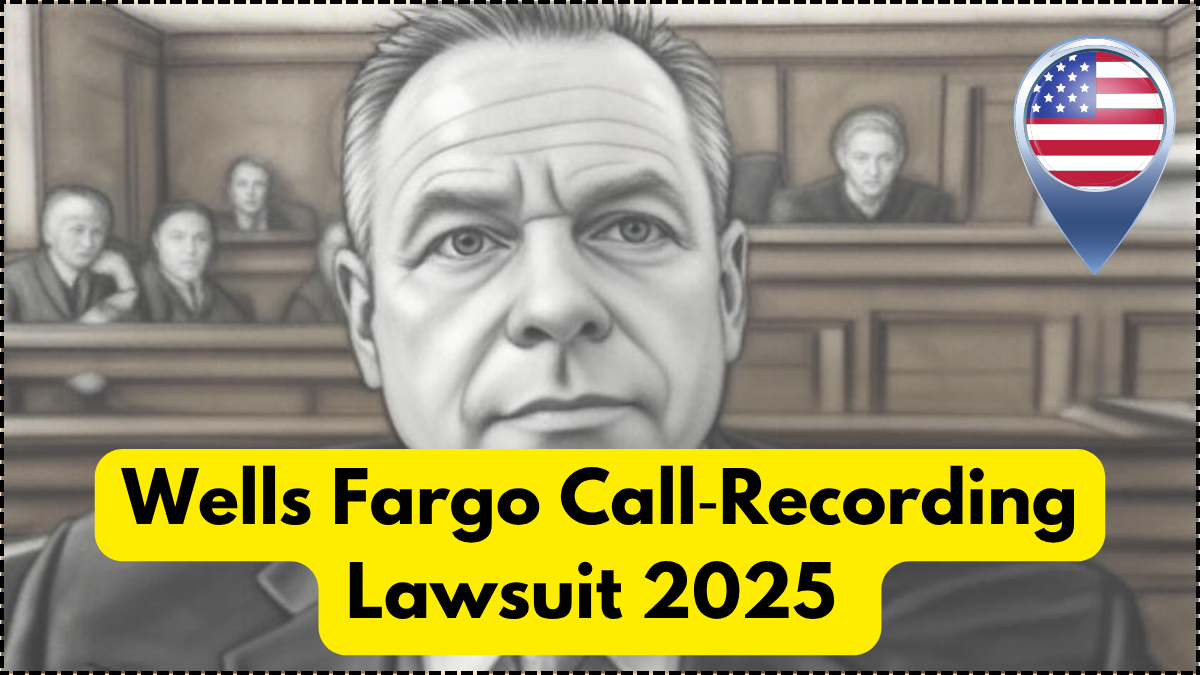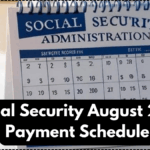The Wells Fargo call‑recording lawsuit 2025 has become one of the most talked‑about legal cases involving consumer privacy in California. The lawsuit centers on allegations that Wells Fargo recorded phone calls without proper consent and engaged in fraudulent telemarketing phone recordings targeting customers.
As the case develops, California residents who interacted with Wells Fargo by phone are asking what this lawsuit means for them — and whether they could be entitled to compensation or involved in the proceedings.

What Is the Lawsuit About?
At the heart of the Wells Fargo call‑recording lawsuit 2025 are claims that the bank violated California’s strict privacy and telemarketing laws. Plaintiffs allege that Wells Fargo recorded customer calls without providing clear warnings or obtaining explicit consent, which is required under California law.
Additionally, there are accusations of fraudulent telemarketing phone recordings, where customers say they were misled during calls promoting financial products, credit card upgrades, or loan services.
Key Allegations in the Case
The lawsuit has several major claims that are being examined in court, making the Wells Fargo call‑recording lawsuit 2025 complex and significant.
| Allegation | What It Means |
|---|---|
| Unlawful Call Recording | Calls allegedly recorded without consent under California’s two‑party consent law |
| Misleading Sales Practices | Claims of fraudulent telemarketing phone recordings promoting services |
| Privacy Violations | Improper handling of consumer data obtained from recorded calls |
| Potential Compensation | Consumers could be eligible for settlements if allegations are proven |
These allegations have sparked a wave of attention from regulators and consumer rights advocates.
Why This Matters for Consumers
The Wells Fargo call‑recording lawsuit 2025 is not just a legal headline — it has direct implications for California residents who spoke with Wells Fargo representatives by phone.
If allegations of fraudulent telemarketing phone recordings and unlawful recording are proven, affected customers could:
-
Qualify for financial compensation through a settlement
-
Have their claims of privacy violations addressed
-
Influence how telemarketing and recording practices are handled by banks nationwide
This case could set a precedent for how companies handle consent during phone calls.
What Should Consumers Do Now?
For those who suspect they might be affected by the Wells Fargo call‑recording lawsuit 2025, there are steps to consider.
-
Keep records of any phone calls or communications with Wells Fargo
-
Watch for official notices regarding the lawsuit or potential settlements
-
Contact legal aid or a consumer rights attorney if you have questions about your rights
-
Stay updated on developments, especially concerning fraudulent telemarketing phone recordings
By being informed, consumers can protect their rights and take advantage of any remedies available.
Conclusion
The Wells Fargo call‑recording lawsuit 2025 is a major case that highlights the importance of consumer privacy and consent in phone communications. With allegations of fraudulent telemarketing phone recordings and unlawful call recording practices, this lawsuit could change how financial institutions handle customer interactions. California consumers should stay informed and aware of their rights as the case progresses.
FAQs
What is the Wells Fargo call‑recording lawsuit 2025 about?
It involves allegations that Wells Fargo recorded calls without consent and used fraudulent telemarketing phone recordings.
Could customers receive compensation?
Yes, if the lawsuit leads to a settlement, affected consumers may be eligible for payment.
Why are California laws important in this case?
California requires two‑party consent for recordings, a key issue in the Wells Fargo call‑recording lawsuit 2025.
How can I find out if I’m included in the case?
You should monitor official legal notices or contact a consumer attorney for guidance.
What should I do if I received suspicious calls from Wells Fargo?
Document the calls and keep records, especially if you suspect fraudulent telemarketing phone recordings occurred.
Click here to know more.



